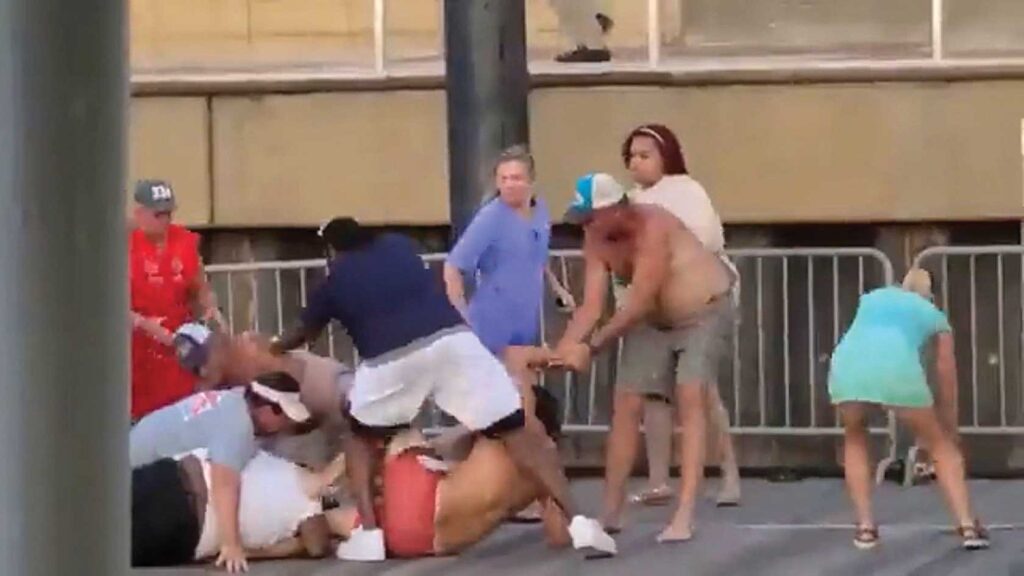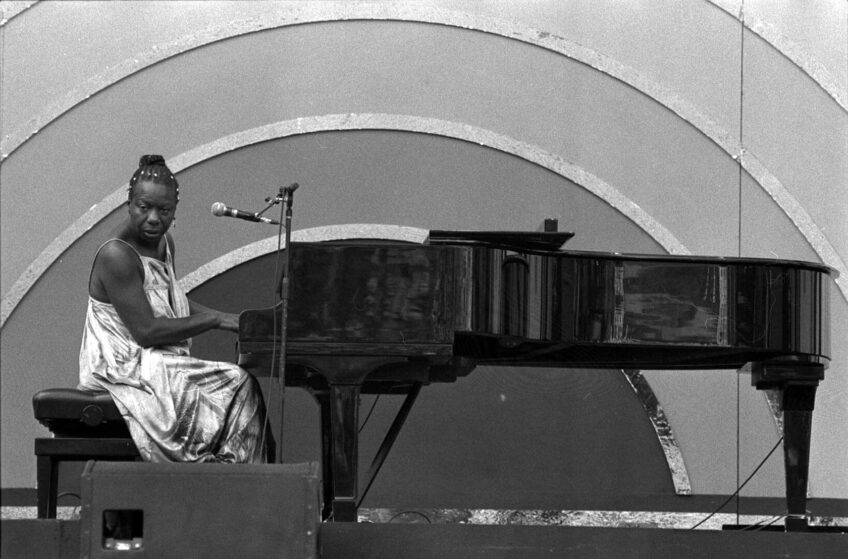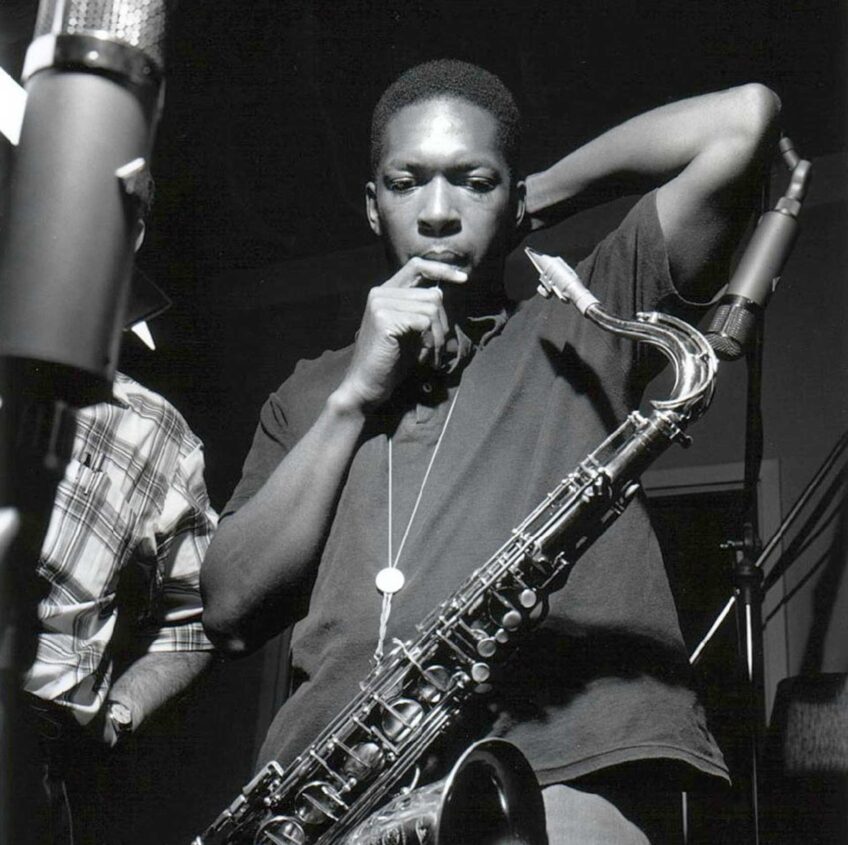Montgomery fight spurs creative output
Videos, memes elevate Black defenders to mythical figures

In the weeks since the celebrated “Battle of Montgomery” on a riverfront dock, Black people have released a torrent of creative cultural production — comedic reenactments of the racially tinged fight, commentaries and sound effects edited into the videos of the conflict and, of course, hundreds of memes, among them Martin Luther King Jr. embracing a folding chair, Harriet Tubman swinging a folding chair and homages to Nathaniel Alexander, the Black man who in 1911 first patented the folding chair.
The conflict that erupted Aug. 5 was between a half-dozen-or-so whites whose pontoon boat blocked a space reserved for a riverboat that carried a mostly-Black crew and more than 200 passengers, most of whom were Black as well. Videos shot by riverboat passengers, who waited 45 minutes while the crew tried in vain to persuade the whites to move their boat, caught the scene from multiple angles as the fight quickly transformed from a six-on-one beatdown of the riverboat’s Black co-captain to a retaliatory melee in which the white boaters were essentially beaten into submission before they were handcuffed by the mostly Black Montgomery police officers who appeared on the scene.
Almost instantly, Black social media erupted in expressions of elation. In multiple videos, Black content producers added as a soundtrack “Try That in a Small Town,” the anthemic country and western song by Jason Aldean, whose music video pairs videos of Black Lives Matter protestors with lines such as “Round here we take care of our own/ You cross that line it won’t take long.”
In the Battle of Montgomery, it was white people who crossed that line and saw how quickly Black people — including police officers — took care of their own. And it didn’t take long.
Blacks saw in the Battle of Montgomery a reversal of the familiar narrative played out in countless cellphone videos, in which Blacks are victimized by racist cops and made to feel the fury of law enforcement officers and then are subject to prosecutors who mete out America’s uniquely racist brand of justice. Eleven years after vigilante George Zimmerman evaded culpability in the killing of Trayvon Martin, Black people the world over have become accustomed to this narrative after hundreds of years of lynchings and similar spectacles of white-on-Black violence historically deployed to enforce slavery and Jim Crow white supremacy.
Given this history, it’s not hard to see how the reversal that played out on the dock in Montgomery has captivated the imagination of Black America. In the space of a week, it spawned prolific creative output including raps, songs, toasts, mock sermons and the veneration of Aug. 5 as “Cinco de Negro” — playing off the Mexican holiday commemorating the 1862 defeat of Napoleon’s army in the Battle of Puebla.
Such creative output is part of a long tradition in Black culture — a tradition in which Blacks have reversed popular white narratives, underscoring the gap between our perceptions and experiences of major and minor historical events and those of white Americans.
One such counternarrative emerged when the Titanic sank in 1912. African Americans, mindful that Black people were not allowed on the ship, created a fictitious character, Shine, who while working as a stoker in the engine room, tried in vain to warn the captain the ship was sinking, then swam back to New York, refusing the white passengers’ entreaties for help. Memorialized in toasts — spoken-word verses that in the early 20th century served a function similar to our contemporary memes — Shine embodied a militant rejection of Black servility. That rejection also appeared in the toasts and field songs mythologizing Stagger Lee, a 19th-century criminal figure who famously shot a man dead for stealing his Stetson hat.
These mythologized figures challenged and reversed the popular depictions of African Americans propagated by white America in minstrel shows and in Hollywood for much of the 20th century — depictions in which Blacks were portrayed as servile, cowardly and dim-witted. Real-life Blacks who defied such stereotypes, such as back-to-Africa proponent Marcus Garvey, world heavyweight champion Jack Johnson or Black liberation activist Angela Davis often faced prosecution and imprisonment.
For hundreds of years, Blacks have been limited in their ability to protect themselves and each other from white violence. In the 2023 Battle of Montgomery, those following the action on social media have been witnessing the veneration of real-life Black heroes who protected their own — and their simultaneous transformation into mythological figures. Heroes like the deckhand who swam from the riverboat to the dock to defend the ship’s co-captain against his white attackers and has been memorialized as “Aquamayne.” Content creators have edited superhero iconography into videos of the battle, depicting Blacks as members of the comic-book squad the Avengers.
In the hundreds of memes, tribute videos and mythologized heroics of the Battle of Montgomery protagonists, America is witnessing a singular expression of Black joy — a celebration of a nation’s history of violent white domination flipped on its head. Coming at a time of fierce pushback against societal gains made by Blacks, Latinos, LGBTQ people and others who have historically been marginalized in American society, it’s not surprising the events on the dock of the Alabama River have occupied a central space in Black America’s imagination.
With Donald Trump duking it out with Florida Gov. Ron DeSantis for the Republican nomination, and with whites the nation over lining up behind their campaign platforms promising to turn the clock back on the civil rights gains of the last 50 years — Make America Great Again! — the Battle of Montgomery showcased Blacks’ fighting spirit. This time, in the “Try That in a Small Town” narrative, it was the white people who tried something and saw how far they made it down the road.







